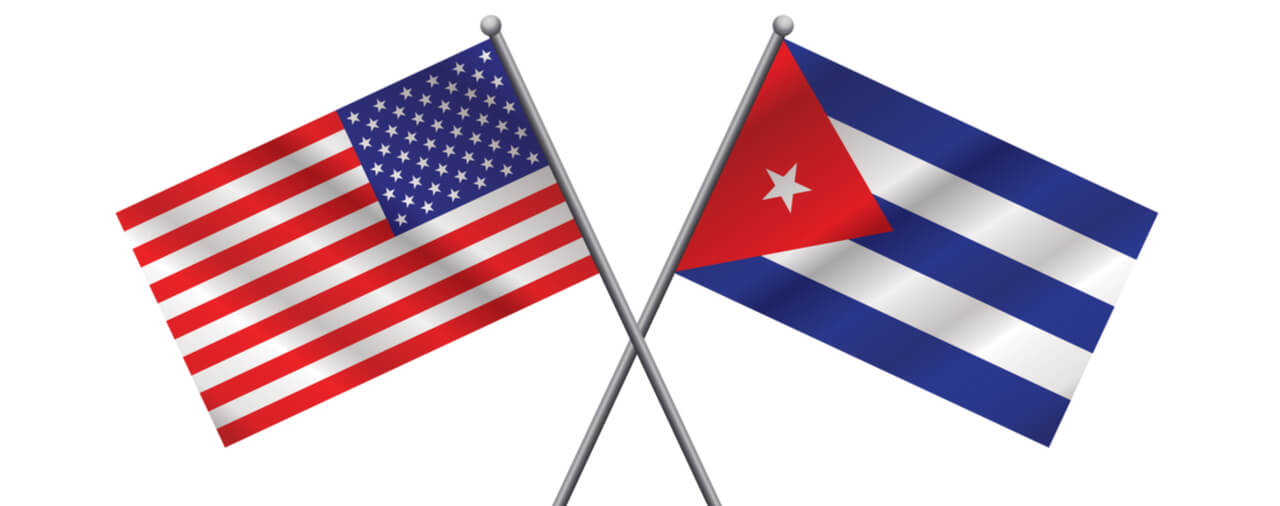Immigration Aspects of New Trump Memorandum on Cuba Policy
Immigration Immigration Deportation Immigration Visa
Summary: On June 16, 2017, President Donald Trump issued a memorandum to his administration titled “Strengthening the Policy of the United States Toward Cuba.” On October 20, 2017, the memo was published in the Federal Register (FR) at 82 FR 48875.
 On June 16, 2017, President Donald Trump issued a memorandum to his administration titled “Strengthening the Policy of the United States Toward Cuba.” On October 20, 2017, the memo was published in the Federal Register (FR) at 82 FR 48875 [PDF version]. In this post, we will examine in brief the provisions of the memo that implicate U.S. immigration policy. We will also reference more recent and related developments involving immigration and Cuban nationals. Those who are interested in learning about what the memo has to say regarding U.S. policy toward Cuba generally, including on travel to Cuba, may read the memo as published in the Federal Register (see above link).
On June 16, 2017, President Donald Trump issued a memorandum to his administration titled “Strengthening the Policy of the United States Toward Cuba.” On October 20, 2017, the memo was published in the Federal Register (FR) at 82 FR 48875 [PDF version]. In this post, we will examine in brief the provisions of the memo that implicate U.S. immigration policy. We will also reference more recent and related developments involving immigration and Cuban nationals. Those who are interested in learning about what the memo has to say regarding U.S. policy toward Cuba generally, including on travel to Cuba, may read the memo as published in the Federal Register (see above link).In section 2(e) of the memo, President Trump stated that it is the policy of the executive branch to not reinstate the “Wet Foot, Dry Foot” policy, taking the position that it had “encouraged untold thousands of Cuban nationals to risk their lives to travel unlawfully to the United States.” The Wet Foot, Dry Foot policy had been rescinded by the administration of President Barack Obama weeks before President Trump took office [see blog]. The new memo makes clear that the Trump Administration will not reinstate the policy. In section 3(j), President Trump directed the Secretary of State and the Secretary of Homeland Security to “continue to discourage dangerous, unlawful migration that puts Cuban and American lives at risk.”
In section 2(d) of the memo, President Trump stated that it would be the policy of the executive branch to support the Cuban people through various means. Among the items on the list was his statement that it would be the policy of the executive branch to support the expansion of lawful travel for Cubans.
However, subsequent to the issuance of the memo, the United States removed most of its embassy staff out of Cuba due to mysterious attacks that caused American diplomatic employees to suffer neurological impairment and hearing loss. Accordingly, the Embassy in Havana is not issuing visas as of the writing of this article. Nevertheless, Cubans may still seek visas to lawfully enter the United States at posts outside of Cuba.
In section 2(f) of the memo, President Trump stated that it would be the policy of the executive branch to enforce final orders of removal against Cuban nationals in the United States. Notably, Cuba has been identified as a country that has been recalcitrant in accepting the return of its nationals subject to final orders of removal [see blog].
The memo thus provides a few interesting updates on the Trump Administration's policy toward Cuba regarding immigration. It suggests that the Trump Administration will look to handle immigration from Cuba in the same manner it handles immigration issues involving other foreign nationals, continuing a shift from the Obama Administration in this area. This notably includes the decision to not bring back the “Wet Foot, Dry Foot” policy and to work to enforce final orders of removal against Cuban nationals subject to such orders in the United States. However, because of the complicated diplomatic situation between the United States and Cuba, the situation remains in flux. We will continue to update the website with information of interest for Cuban nationals in the U.S. immigration context. Those with specific questions should consult with an experienced immigration attorney for guidance.
Please visit the nyc immigration lawyers website for further information. The Law Offices of Grinberg & Segal, PLLC focuses vast segment of its practice on immigration law. This steadfast dedication has resulted in thousands of immigrants throughout the United States.
Lawyer website: http://myattorneyusa.com
© 2025 LAWYER.COM INC.
Use of this website constitutes acceptance of Lawyer.com’s Terms of Use, Email, Phone, & Text Message and Privacy Policies.
 by
by